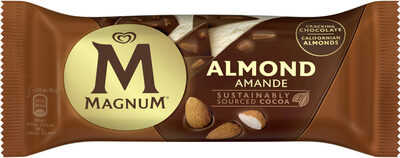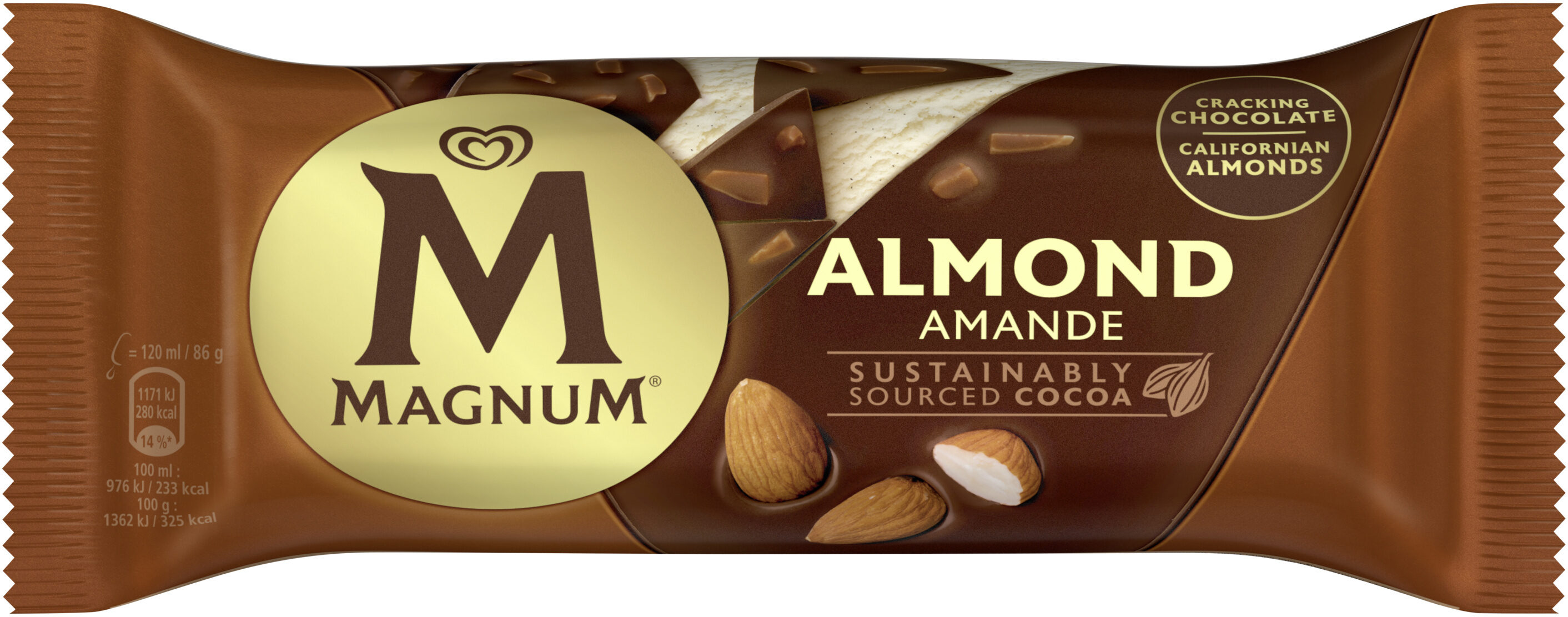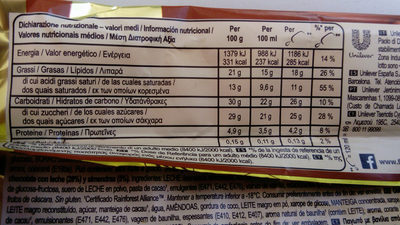Magnum Ice Cream Lolly ALMOND 120 ML - 86 g
Aquesta pàgina del producte no està completa. Podeu ajudar a completar-la editant-la i afegint-hi més dades a partir de les fotos ja disponibles, o fent-ne més amb l'aplicació de androide o iPhone / iPad. Gràcies!
×
Algunes de les dades d’aquest producte les ha proporcionat directament el fabricant Unilever France.
Codi de barres: 8000920500224 (EAN / EAN-13)
Nom comú: Glace vanille à l'arôme naturel de vanille de Madagascar enrobée de chocolat au lait (28%) et d'amandes (5%).
Quantitat: 86 g
Empaquetament: en:multilayer-composite, Film, 81 C/X
Categories: Snacks, Postres, Aperitius dolços, Llaminadures, Aliments congelats, Postres congelats, Sorbets i gelats, Gelat, en:Ice cream bars
Etiquetes, certificacions, premis:
Lliure de gluten, Punt verd, Aliança Tropical, Rainforest Alliance Cocoa, Triman, it:Bezglutenowy


Origen del producte i / o dels seus ingredients: France
Enllaç a la pàgina del producte en el lloc oficial del productor: https://www.magnumicecream.com/de/produk...
Botigues: EDEKA
Països on es va vendre: Àustria, Bèlgica, França, Alemanya, Guadalupe, Itàlia, Singapur, Espanya, Suècia, Suïssa
Matching with your preferences
Entorn
Petjada de carboni
Empaquetament
Transport
Etiquetes
Altres dades
Condicions de conservació: À conserver à -18°C.
Servei al client: Magnum Relation Consommateurs, Unilever France, 20 rue des Deux Gares 92842 Rueil-Malmaison Cedex
Report a problem
Fonts de dades
El fabricant Unilever France utilitza Equadis per transmetre automàticament dades i fotos dels seus productes.
Producte afegit per openfoodfacts-contributors
Última modificació de la pàgina del producte per foodless.
La pàgina del producte, també editada per 5m4u9, aleene, date-limite-app, davidepio, fiffi, foodrepo, foodvisor, ibwocoruytrc, ilariapicelli, inf, kiliweb, nicoolas, olofolleola4, openfood-ch-import, org-unilever-france-gms, packbot, predatorix, pyrka, roboto-app, scanbot, segundo, thaialagata, torredibabele, yuka.RnE4OUFJSmNoK1ZSdU1FYjQwM253ODlmMnJuNFlGcXRGcmNPSWc9PQ, yukafix.












